Ah rain. We need rain. I love rain. Our weary land that was so parched in June is suddenly refreshed by rain. And our plans are changed by rain, but that’s okay because it provides opportunities for us to consider other trails than those intended.

And so it was that we headed onto a local community forest this morning between rain drops.
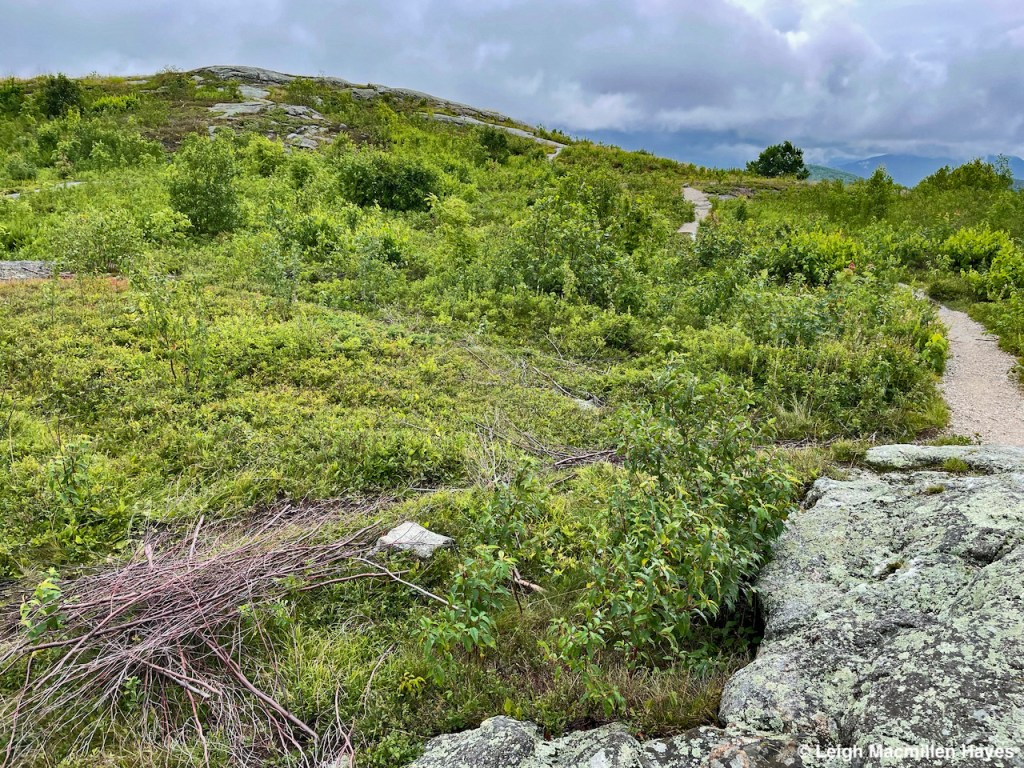
The trail, terrain, plants, and weather gave us the sense of wandering in Scotland. Or perhaps that was wishful thinking.

As we explored, our hopes lifted as hang clouds decorated the backdrop behind erratic boulders.
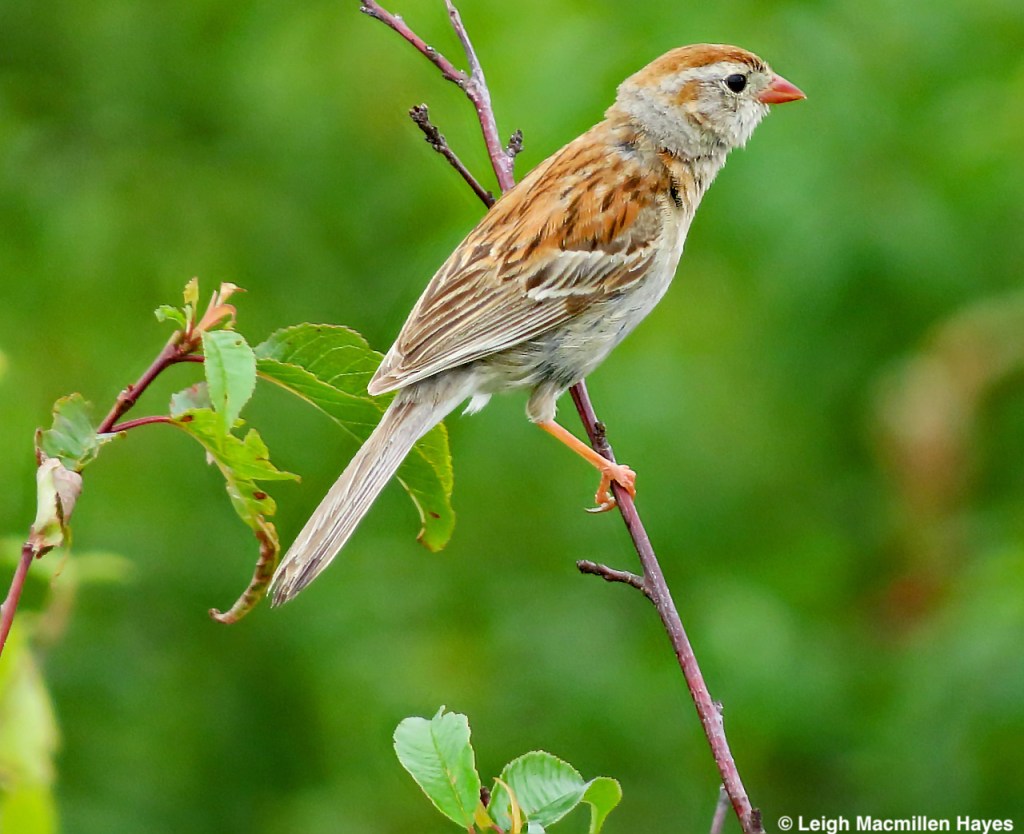
And birds like this handsome Field Sparrow sang and gathered food, presumably for nestlings.

In the mix, Catbirds meowed.

But what mattered most to me were the insects and I expected so many, but was disappointed by so few. I did spy this Band Net-Winged Beetle on a Spirea, its bright coloration shouting a footnote of its offensive taste to predators.

Similar in Halloween costume color choices was the Small Milkweed Beetle, its main plant source a week or two past, but note the heart on its back–a sign of forever love. Interestingly, Small Milkweed Beetles help gardeners enjoy the milkweed plant and the butterflies that are attracted to them without having to worry that milkweed may overtake the garden.

To keep the party going, a Blue and Red Checkered Beetle happened onto the scene. Checkered Beetles occur where there’s a large supply of nectar and pollen.
Of course, with all this goodness, there has to be at least one in hiding–in this case a Goldenrod Crab Spider on a Bristly Sarsaparilla.
We spied him as we walked out with a sandwich from Eaton Village Store on our minds, and then again as we hiked in for a second time and then finally out again.
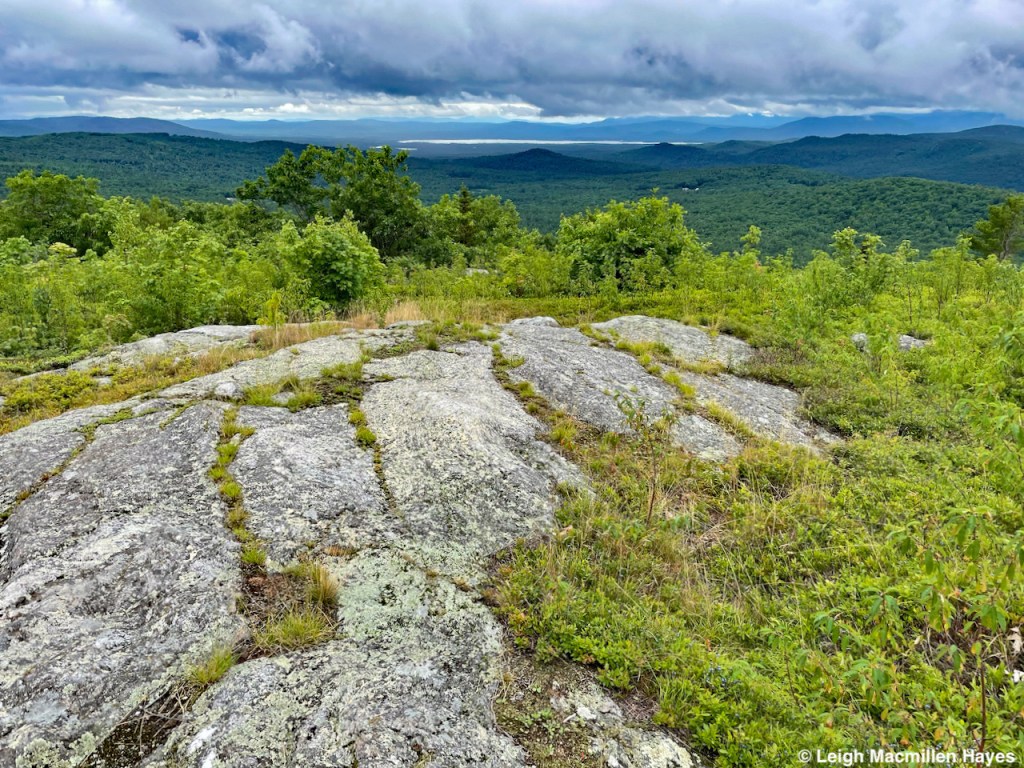
Upon our return, though it had poured as we ate, the rain abated and Ossipee Lake made itself visible.

It was on that second visit that I finally noted a honeybee working frantically to fill its honey pots.

So did small skippers such as this Dun Skipper upon the early blossom of Joe Pye Weed, his proboscis probing the not yet opened flowers.

With the rain abating, the Pye Weed soon became a plant of choice. Among its guests was a Great Spangled Fritillary all decked out in stripes, dots, and commas.
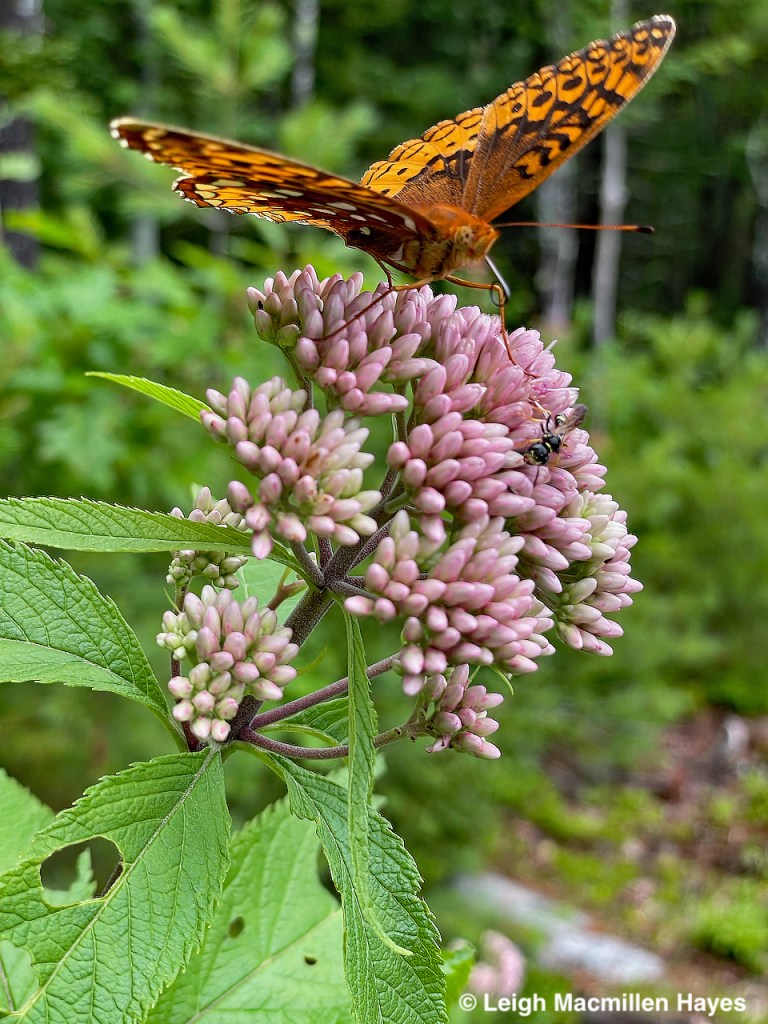
Because the flower hadn’t fully opened, the Fritillary’s proboscis curled in true butterfly behavior.

Suddenly, or so it seemed as the temp slightly rose, pollinators came out of hiding, including a Silver Spotted Skipper, its spot shouting its name.

Toward the end of our adventure, my heart rejoiced with the spot of a Green Lacewing, one of the subtle offerings in the wooded landscape.

It was just such a landscape that appealed to us today and we tossed all other trail choices into the pot for future expeditions. If you know my guy, you know what is to come.

Little fruit morsels became the object of his attention.
You and I know them as Low-bush Blueberries.
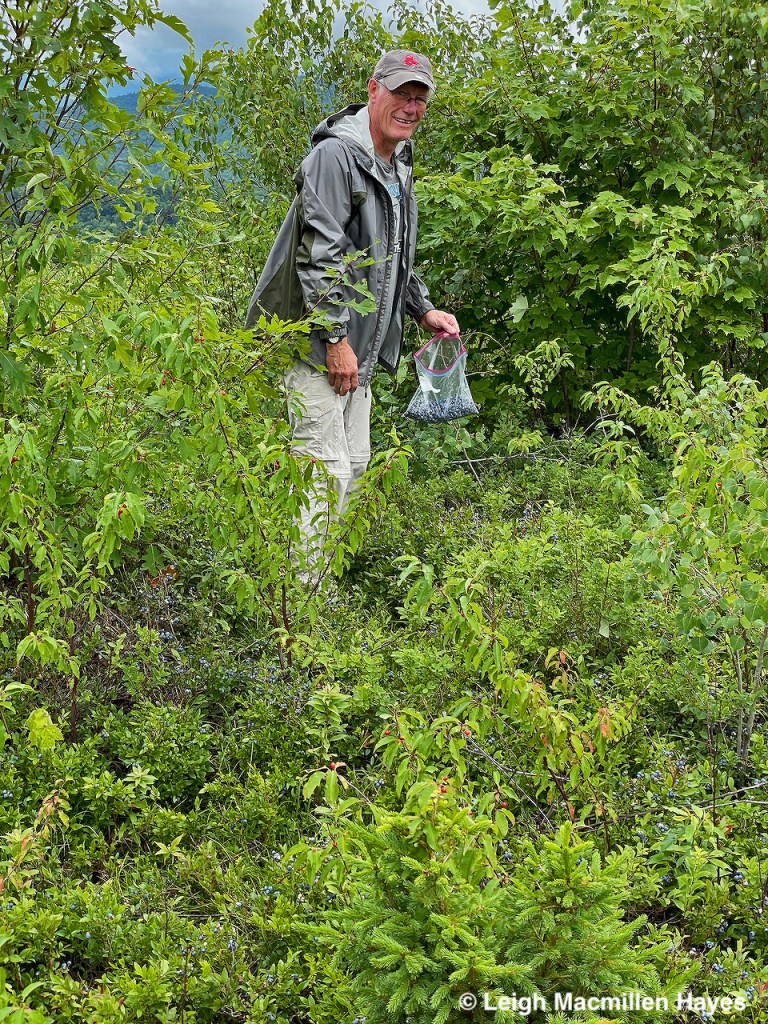
He knows them as the source of his Blueberry Greed.
All in all, he filled a couple of bags (and I helped! a little bit, that is). I have to say that I was amazed by the sight of all the little blue fruits for so few seemed the pollinators of the day. What I’ve shared with you was it. Literally. In number.
Yesterday my friend Joe Scott, an avid birder, shared this information with me from a New Hampshire Bird Listserve:
“The absence of insects obviously impacts insectivorous bird species. In Knight Hill Nature Park in New London, [NH] for the last two weeks, there have been 27 fully blooming butterfly weed plants, hundreds of common milkweed plants and two pollinator apartment blocks, but no insects! Oh, on any given day, perhaps one or two butterflies and half a dozen bumble bees. Ten years ago, at this time of year, these plants would be covered with butterflies, bees and other insects, as many as 20 species of butterflies and 10 species of bees.”
Today’s Mondate Blues represents those who don’t like the rain, or my guy and his blueberry greed, or the lack of pollinators or my color of choice. I’m just happy that we got out there and found so many sources of goodness on this wet day.



Thank you for the walk on a rainy day! It did remind me of Scotland. Happy memories. Where are the pollinators! It is very concerning. But the blueberries looked so lush! Enjoy!! xo
The blueberries at camp are under water 😦
LikeLiked by 1 person
Oh bummer on your blueberries. The ones at are camp are smaller than usual and not as abundant–I assume due to the lack of pollinators. Here at home, however, the Beebalm is alive with Bumble Bees.
LikeLike
A beautiful hike and an impressive blueberry haul. 🙂
Insects counts are down all over… that does not bode well for everyone else up the food chain, including us. The 100-year-war on insects will be our undoing, I fear.
LikeLiked by 1 person
I totally agree, Eliza. Twenty years ago it was all so different and I remember the garden buzz and all kinds of butterflies and a windshield that needed constant cleaning. Ten years ago–a certain change. Today–oy vey!
LikeLiked by 1 person
Your friend’s words are scary. What’s in store?? Here at home, we’ve had an unusually high population of skippers this year…meaning what? I’ll get my fix on butterflies on your terrific photos!
LikeLiked by 1 person
I don’t know what’s in store. I’ve got bees at the beebalm, but not like we used to have. Same with butterflies. I’ve seen some skippers, but not so many others.
LikeLike